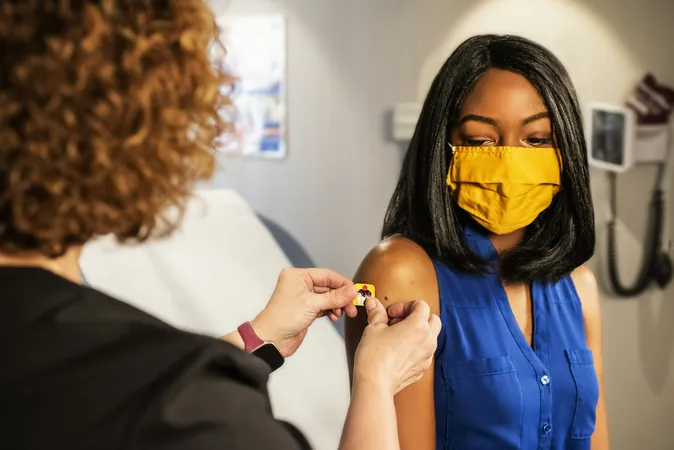
Shocking Revelation: Most Pregnant Women in Ontario Were Vaccinated Against COVID-19 in 2022!
2024-10-01
Groundbreaking Study Findings
A groundbreaking study conducted on over 28,000 pregnancies throughout 2022 reveals a compelling trend: a significant majority of pregnant individuals opted to receive the COVID-19 vaccine at its initial rollout. This vital research was spearheaded by experts from McMaster University and the University of British Columbia, leveraging data from ICES, a reputable independent research organization.
Vaccination Rates Among Pregnant Individuals
Released in the Canadian Medical Association Journal on October 1, 2024, the study found that approximately 79% (or 22,581 individuals) who gave birth in Ontario in the early months of 2022 had received at least their first COVID-19 vaccine dose. By the time they were three months postpartum, 75% (21,425 individuals) had also received their second dose.
Vaccination Before and After Pregnancy
Remarkably, half of those vaccinated received their first dose prior to pregnancy, while a mere 4% chose to delay their vaccination until after childbirth. This high vaccination rate among pregnant individuals is viewed as a substantial achievement in public health, particularly given the heightened vulnerabilities associated with pregnancy during the pandemic.
Expert Insights
Meredith Vanstone, the study's senior author and associate professor in McMaster's Department of Family Medicine, expressed her optimism about the findings. 'Seeing this level of vaccination among pregnant people is encouraging, as COVID-19 can lead to severe outcomes during pregnancy. This is a significant public health victory, highlighting that individuals were able to access reliable information from trusted sources, including family doctors.'
Comparison with Non-Pregnant Peers
Interestingly, the study highlighted that pregnant individuals were slightly less likely to have received the vaccine than their non-pregnant peers of the same age. Approximately 83% of non-pregnant females in the same age bracket received their initial dose, with 80.5% securing their second dose during the same timeframe. Moreover, the research indicated lower vaccination uptake among younger pregnant individuals.
Challenges of Misinformation
Devon Greyson, the first author and assistant professor at the University of British Columbia’s School of Population and Public Health, noted that misinformation surrounding COVID-19 vaccines particularly targeted pregnant individuals, making informed health decisions a considerable challenge. 'Despite the barrage of misleading information, it’s uplifting to witness how many pregnant people managed to navigate these obstacles and ultimately prioritize their health and that of their babies,' Greyson stated.
Conclusion and Future Implications
This comprehensive study sheds light on a crucial narrative regarding vaccine uptake among expectant mothers during an unprecedented health crisis. As we move forward, the insights gained from this research could play a pivotal role in shaping public health strategies and policies aimed at vulnerable populations during future health emergencies.
Further Discussion
Wondering how this compares to vaccination rates in other demographic groups? The discussion is just beginning!



 Brasil (PT)
Brasil (PT)
 Canada (EN)
Canada (EN)
 Chile (ES)
Chile (ES)
 España (ES)
España (ES)
 France (FR)
France (FR)
 Hong Kong (EN)
Hong Kong (EN)
 Italia (IT)
Italia (IT)
 日本 (JA)
日本 (JA)
 Magyarország (HU)
Magyarország (HU)
 Norge (NO)
Norge (NO)
 Polska (PL)
Polska (PL)
 Schweiz (DE)
Schweiz (DE)
 Singapore (EN)
Singapore (EN)
 Sverige (SV)
Sverige (SV)
 Suomi (FI)
Suomi (FI)
 Türkiye (TR)
Türkiye (TR)